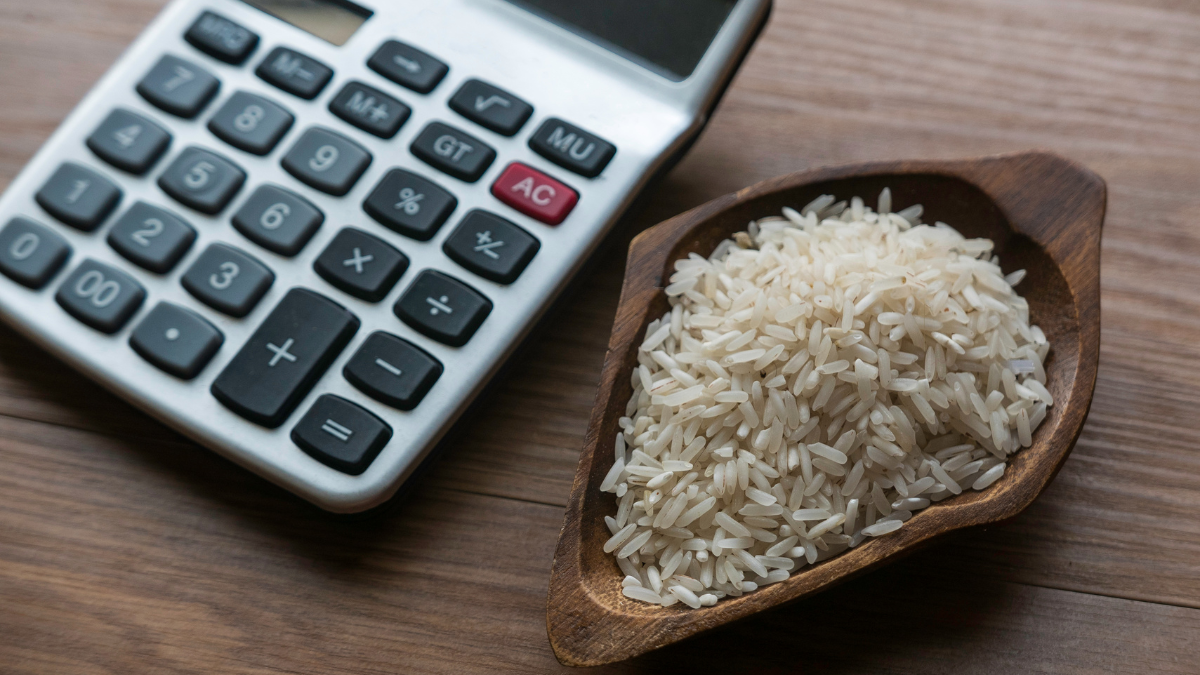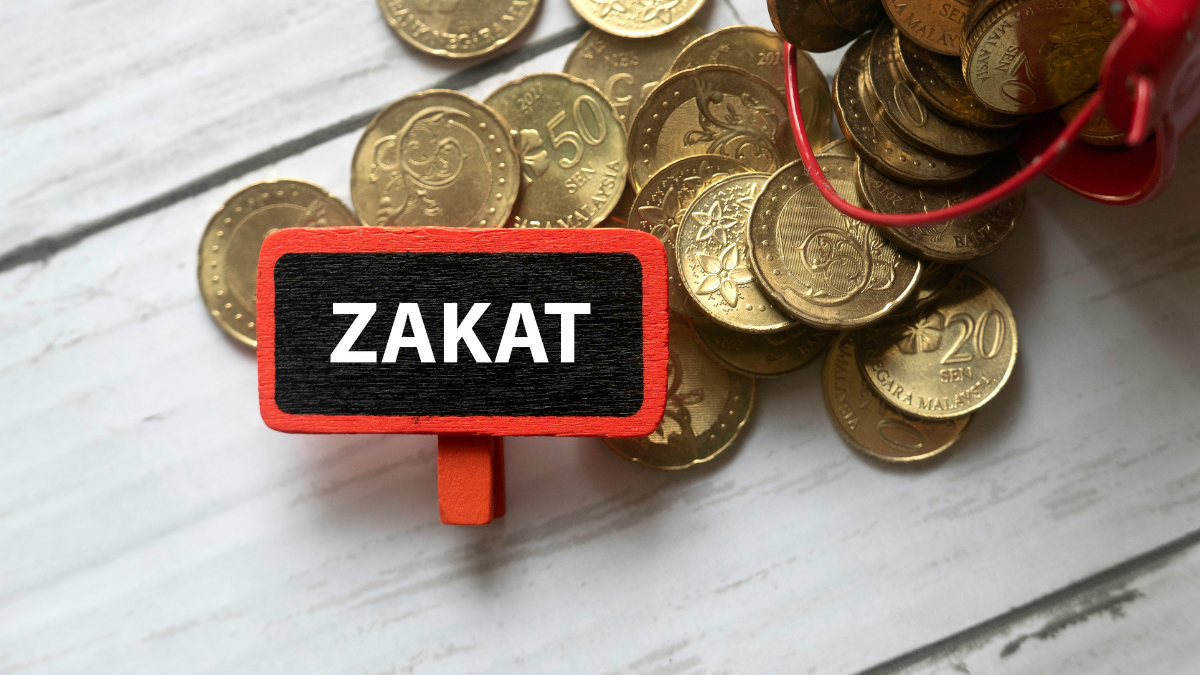Zakat is one of the five pillars of Islam, and it’s a sacred pillar that benefits Muslims in all spiritual, economic, and humanitarian aspects.
The Working Out Zakat
In order Working Out Zakat, there are specific conditions and rules. There are particular types of wealth on which Zakat is obligatory, and they are paid to specific parties at certain times.
Allah (SWT) commanded paying Zakat and linked its importance to prayer in the Holy Qur’an when He said: “Establish prayer, pay alms-tax, and bow down with those who bow down.” – Al-Baqarah – verse 43.
Zakat Payment
The payment of Zakat is obligatory on wealth that fulfills the following conditions:
- To be wholly owned and at the disposal of the Muslim (debit money and wealth that cannot access do not require Zakat).
- The wealth above the basic living needs (the house, car, farm, and shop, Zakat is not due on them).
- To reach or exceed the “Nisab” value.
- Passage of a full lunar year on wealth (al-Hawl).

The Nisab of Zakat
Nisab is the minimum amount of wealth a Muslim must possess to pay Zakat, which is determined yearly by reliable Islamic authorities.
Where the value of the Nisab is directly related to the price of gold or silver, and the Nisab is equal to the value of (85 grams of gold), or (595 grams of silver), and a full lunar year must pass over it, as the Messenger of God Muhammad (PBUH) told us about it.
Narrated Ali ibn Abu Talib: The Prophet (PBUH) said: “When you possess two hundred dirhams and one year passes on them, five dirhams are payable. Nothing is incumbent on you, that is, on gold, till it reaches twenty dinars. When you possess twenty dinars and one year passes on them, half a dinar is payable. Whatever exceeds, that will be reckoned properly.”
Sunan Abi Dawud – 1573
Beneficiaries of Zakat
Zakat funds are spent on the eight categories that Allaah (SWT) has shown in Surah Al-Tawbah – verse 60:
- Poor people (Fuqaraa).
- Needy people (Masakeen).
- Its administrators (Aamileen).
- Those who have a reconciliation of heart (Muallafatul Quloob).
- To free those in bondage (Ar-Riqaab).
- The debt-ridden (Al Ghaarimeen).
- For the cause of God (Fi Sabeelillah).
- The Wayfarer (Ibnu-Sabil).
Nisab for Zakat 2024
You can calculate the Nisab value yourself daily by knowing the price of a gram of gold and applying the following equation:
- Gold price per gram in US$ × 85 grams = Nisab value.
Example: Suppose that the price of a gram of gold today is $60, so:
$60 × 85 = $5,100.
Zakat Calculation Formula
The formula for calculating Zakat differs according to the type of wealth:
- Banknotes, gold, silver, and commercial goods (wholesale price or capital), Zakat is paid at 2.5% of their value.
- For fruits and crops irrigated agriculture (watered by the farmer), 5% of the value of Zakat is paid for one time at harvest.
- For rain-fed agricultural fruits and crops (irrigated with rain water), Zakat is paid 10% of their value once at harvest.
- Treasures (if you find a treasure, you must pay 20% of it as Zakat).
Note: Nisab for fruits and crops is 653 kg or more.
Zakat on Cash
Concerning the Zakat that is must pay on paper currency, it is interchangeable with gold and silver, as you have to know the value of your local currency in exchange for gold or silver and determine the value of the amount that corresponds to 85 grams of gold or 595 grams of silver.
The value of Zakat on money is 2.5%.
But the question here is, in light of the significant difference between the value of 85 grams of gold or 595 grams of silver, should we take the Nisab of the gold or the silver?
Some scholars referred to taking the minimum, while the most likely opinion is to take it with regard to the gold standard, and Sheikh Yusuf Al-Qaradawi confirmed this in his book “Fiqh Az-Zakat.”
Zakat on Gold
As we mentioned, gold is the essential criterion for paying Zakat, and Zakat must be paid on it in whatever form it is, whether it is coins, ingots, ounces, or handicrafts, as long as the total amount exceeds the Nisab, which is 85 grams. The amount of Zakat on gold is 2.5% as well.
It is worth pointing out that the gold women wear for adornment and jewelry is not subject to Zakat.
As for the types of gold on which Zakat is due:
- When gold is stored to maintain financial assets.
- When the amount of women’s ornamental gold exceeds the reasonable value (accepted in society).
- When a man owns jewelry, just as wearing gold is forbidden for men in the first place.
Zakat on Silver
The situation with silver is very similar to gold, as silver used for jewelry by women is not subject to Zakat, just as it is permissible for men to wear silver rings.
But Zakat is due on stored silver when it exceeds 595 grams, and the amount of Zakat on silver is 2.5%.
“O, believers! Indeed, many rabbis and monks consume people’s wealth wrongfully and hinder ˹others˺ from the Way of Allah. Give good news of a painful torment to those who hoard gold and silver and do not spend it in Allah’s cause”. Surah Al-Tawbah – verse 34.
Donate your Zakat to Refugee and Displaced People
Refugees and displaced people lack more daily details than you can imagine. Donating your Zakat money to help them will mean the world to our Muslim brothers.
Giving a helping hand to the vulnerable and poor in camps, on borders, and the displaced people in many countries will restore their faith in good-hearted people who genuinely care for their well-being.
Reach out and connect national or international charities like SEMA organization, which has specific programs for supporting refugees and displaced people in many countries worldwide.

FAQ
What is the Formula for Calculating Zakat?
You have to collect all your wealth that’s over your basic needs (such as money, silver, and gold that exceeds the Nisab) over which a full lunar year has passed; then, you pay 2.5% of its value to Zakat.
What is the Nisab for Zakat 2024?
You can calculate the Nisab value yourself daily by knowing the price of a gram of gold and applying the following equation:
Gold price per gram in US$ × 85 grams = Nisab value.
What are the 3 Conditions of Zakat?
Zakat is obligatory on wealth that fulfills the following conditions:
To be wholly owned and at the disposal of the Muslim (debit money and wealth that that cannot access do not require Zakat).
The wealth that’s above the basic living needs (the house, car, farm, and shop, Zakat is not due on them).
To reach or exceed the “Nisab” value and Passage of a full lunar year on wealth (al-Hawl).
How Much Zakat Do You Pay?
The value of Zakat differs from one Muslim to another, depending on the amount of wealth he owns. You have to pay 2.5% on wealth that exceeds the Nisab.
How do you Calculate Zakat?
Zakat is payable at 2.5% of the wealth one possesses above the nisab.
Is Zakat Calculated on Income or Savings?
Zakat Money is only calculated on savings; there is no Zakat due on income.
Resources





